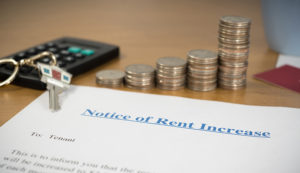Property managers and landlords must always remain aware of the various renters rights they must respect. In doing so, they can stay compliant and prevent liability. But, what are these renters rights anyway?
What Are Renters Rights?
Renters rights, also known as tenants rights, are laws that protect renters from discrimination and unfair practices. These rights also ensure that renters are not forced to live in dirty or unsafe places. Basically, these rights cover what landlords or property managers must do and can’t do. Should landlords or property managers infringe upon these rights, tenants have the option to pursue legal recourse.
The Most Important Tenants Rights to Know
It is imperative that property managers and landlords study up the different rights of renters. This way, you can prevent accusations of discrimination and unfair housing practices, thereby safeguarding yourself from potential liability. Additionally, upholding these rights will help you retain quality tenants and reduce turnover rates.
Here are seven tenants rights you must know about:
1. Right to a Habitable Home
 Tenants have a right to live in a habitable home. That means you should provide your tenants with a house or unit that they can reasonably and safely live in. If there are holes on the wall or large cracks on the floor, that is not a habitable home. The same goes for a lack of electricity or running water, poor wiring, and pest infestations. Basically, the place should be suitable enough to live in.
Tenants have a right to live in a habitable home. That means you should provide your tenants with a house or unit that they can reasonably and safely live in. If there are holes on the wall or large cracks on the floor, that is not a habitable home. The same goes for a lack of electricity or running water, poor wiring, and pest infestations. Basically, the place should be suitable enough to live in.
This also means that you must follow through with any needed repairs to maintain habitability. If the issue has to do with bad wiring, hire an electrician to fix the problem. Should your tenant submit a complaint, make sure to respond to it as soon as possible. Then, address the complaint.
Some repairs, of course, don’t fall under the landlord or property manager’s responsibility. Minor problems such as broken window screens, dripping faucets, and malfunctioning light bulbs are usually the tenant’s responsibilities. Tenants should check their lease to see which items and repairs are included.
You might feel tempted to include a clause in your rental agreement that forces your tenant to waive this right. But, many states deem this practice unlawful.
2. Right to Fair Housing
Perhaps one of the most well-known renters rights is the right to fair housing. The federal Fair Housing Act forbids housing discrimination on the basis of a person’s color, national origin, race, disability, sex, familial status, and/or religion. This applies to both existing and prospective renters. The Americans With Disabilities Act provides similar protections to persons with disabilities.
If you advertise your listing and specifically exclude tenants of a certain religion, for instance, that is considered discrimination. Many states also have their own anti-discrimination or fair housing laws that extend the list of protected classes. California, for one, also prohibits discrimination based on citizenship or immigration status, source of income, sexual orientation, and gender identity or expression, among others.
3. Right to Privacy
Tenants also have a right to privacy, which means you can’t just enter their unit as you please, even if you own it. Of course, sometimes, you will need to enter the unit to perform repairs or inspections. In such cases, you will need to provide your tenant with reasonable notice prior to the entry (at least 24 hours before). You must also make sure to only conduct business during business hours. Emergency cases, though, require no notice.
4. Right Regarding the Security Deposit
More often than not, renters need to pay a security deposit after signing the lease. The landlord or property manager then returns this security deposit following the end of the lease. If there are any damages to the unit or home, deductions from the deposit will be made accordingly. The same applies when the tenant has any outstanding rent. If you intend to keep some of the deposit, make sure to provide your tenant with written documentation of the reason.
Keep in mind, though, that many states have laws that limit how much you can charge as a security deposit. There are also laws that require you to return the deposit within a specified amount of time after the lease term ends. Additionally, you can’t charge one renter a higher deposit than all others without reason. Though, the presence of a pet or other liabilities can warrant a higher deposit.
5. Rights Concerning Evictions
For fixed-term leases, landlords or property managers can’t evict tenants without cause or reason. Month-to-month leases, though, usually allow evictions without cause.
According to Landlord-Tenant Law, you can only evict tenants when they have violated the terms of your lease agreement. Typically, this involves nonpayment of rent, purposefully causing damage to the property, jeopardizing the safety of other tenants, and committing a crime. It also happens when tenants bring in pets or roommates without your permission.
At this point, you can terminate the tenancy by serving your tenant with an eviction notice. But, you must allow your tenant the opportunity to remedy their violation first. For example, if it has to do with nonpayment of rent, give them time to pay. Should your tenant fail to do so, you can then initiate eviction proceedings in court.
Rules on eviction state that tenants must receive notice of the eviction proceedings. They must also be allowed to appear in court as well as file an answer and explain themselves. If you win the case, your tenant must move out. Keep in mind that you can’t use self-help methods here. That means you can’t change the locks on the unit or throw out your tenant’s belongings. You must have the sheriff or sheriff’s deputy remove the tenant from the premises.
6. Right to Sue
Tenants possess the right to sue their landlords, which usually happens when disputes arise. For example, if your tenant requests that you fix the roof (which is leaking) but you fail to address or even respond to it, they have the option to submit a complaint with their city’s housing authority. You can then expect to receive a 60-day notice ordering you to remedy the situation. Should you still fail to comply, your tenant can pursue legal action.
7. Right to Controlled Rent Increases (In Some Places)
 In places without rent control laws, you can essentially raise the rent by however much you like. But, that doesn’t mean you can do it anytime you want.
In places without rent control laws, you can essentially raise the rent by however much you like. But, that doesn’t mean you can do it anytime you want.
You must provide your tenant with sufficient notice, and the timing of the increase must be lawful. That means the increase should come when the lease term ends unless your lease specifies otherwise. Additionally, you can’t raise the rent in retaliation for something your tenant did.
Several cities, though, have rent control laws in place. If you operate a rent-controlled unit, you can only increase the rent by a certain percentage. This percentage differs from city to city. Moreover, you can only raise the rent once a year.
A Necessary Part of Property Management
Understanding renters rights is a critical step in becoming an effective property manager or landlord. Failure to familiarize yourself with these rights can result in a litany of offenses. Finally, keep in mind that even if you have an illegally converted unit, your tenant still reserves the same rights.
For landlords, keeping up with ever-changing laws can come as a challenge. This is why most landlords prefer to seek the help of a professional property management company. Start looking for the best one in your area today using our comprehensive online directory.
RELATED ARTICLES:
- Are You Charging A Fair Rental Rate?
- 11 Common Landlord Tenant Issues And Solutions
- What Are The Legal Liabilities Of Property Managers?




 Company
Company